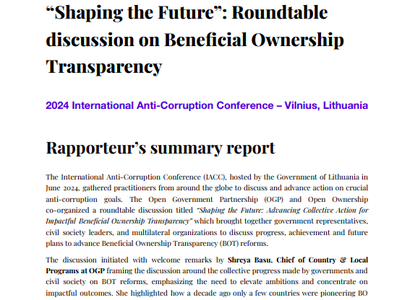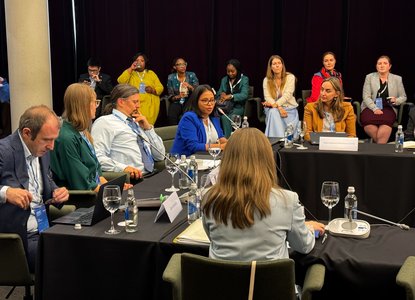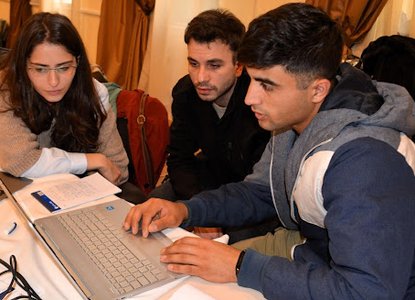Upscaling the use of beneficial ownership data in Armenia
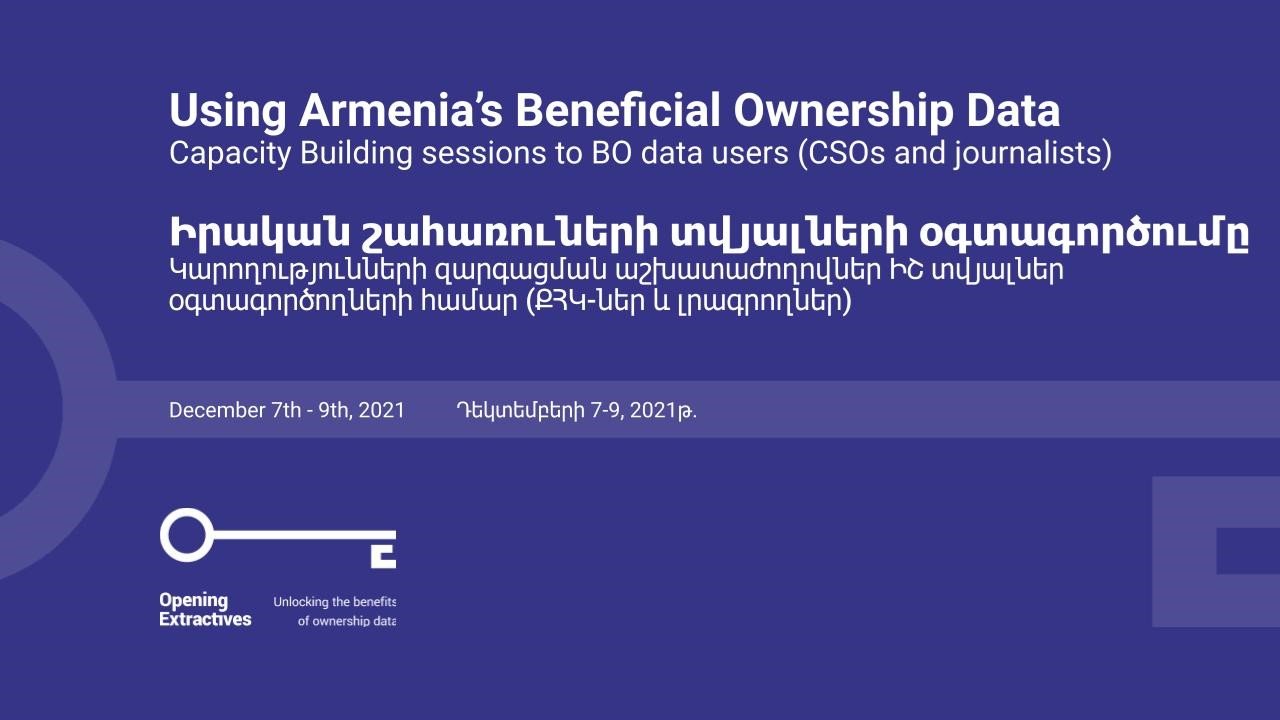
Armenia is a world leader in beneficial ownership transparency. Since 2021, Armenia has been collecting and publishing beneficial ownership information in a well-structured, open data format in a public Business Register. This data is published in line with the Beneficial Ownership Data Standard (BODS) to ensure data is interoperable, easily reusable, and high quality.
Despite there being a large network of civil society organisations (CSOs) and journalists in Armenia that would benefit from it, the register remains relatively unused. Under the Opening Extractives programme jointly delivered by the Extractive Industries Transparency Initiative (EITI) and Open Ownership (OO), and in partnership with the Freedom of Information Centre in Armenia, three online workshops were held for 20 Armenia-based participants last December. The purpose of these sessions was to raise awareness of Armenia’s beneficial ownership regulations, promote a better understanding of the register, and encourage use of the currently available data.
Session 1: Introduction to beneficial ownership and surfacing participants’ interests
After an introduction to beneficial ownership transparency from Peter Low (Country Manager at OO), Lusine Tovmasyan (Head of the EITI Secretariat in Armenia) presented the work Armenia has been doing under the EITI. Tatev Mkrtchyan (Head of the Agency for State Register of Legal Entities) followed with a presentation on the Business Register itself, what information can be found, how it is structured, and what steps are needed to develop a full-economy register in 2022.
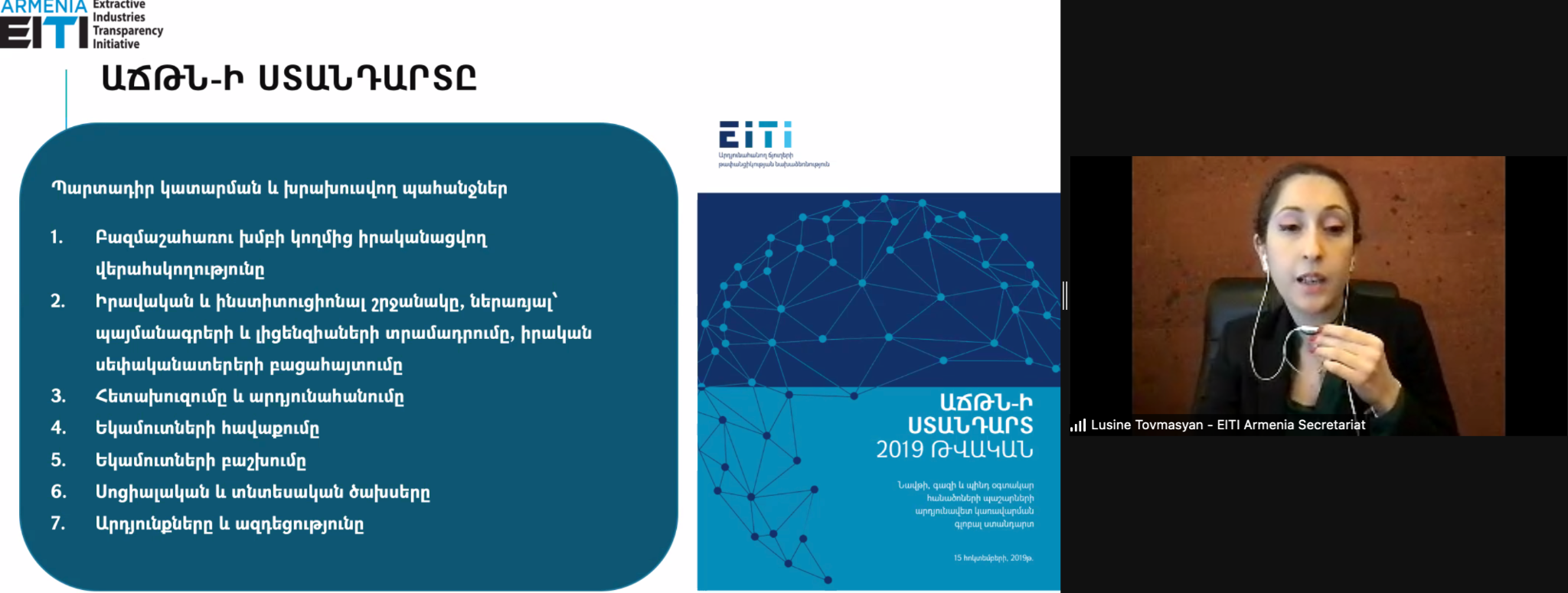
Lusine Tovmasyan presenting the latest EITI report of Armenia
Through a participatory Miro board, participants explored the challenges that beneficial ownership data helps tackle, such as ethics, corruption, and environmental issues. Moreover, participants mentioned that having information in open data formats is not enough: it needs to be timely and reliable; combined with international data sources; and to provide further information on people close to beneficial owners.
Participants mentioned that beneficial ownership data would not only be helpful for research purposes, but also for businesses and their competitors; local communities (to identify the owners of companies operating in their region); law enforcement for tax payments; and other government agencies, such as the Corruption Prevention Commission, which monitors subsoil use issues.
The discussion also covered challenges related to data accessibility (such as data quality; failures in the system; fees charged to non-journalists; information dispersed in different platforms; and outdated data), and the content of the declarations itself (such as beneficial owners’ family data being confidential; publicly listed companies being exempted; and the lack of information on many beneficial owners of extractives companies who are 9.9% shareholders (see our 2020 scoping study for further information).
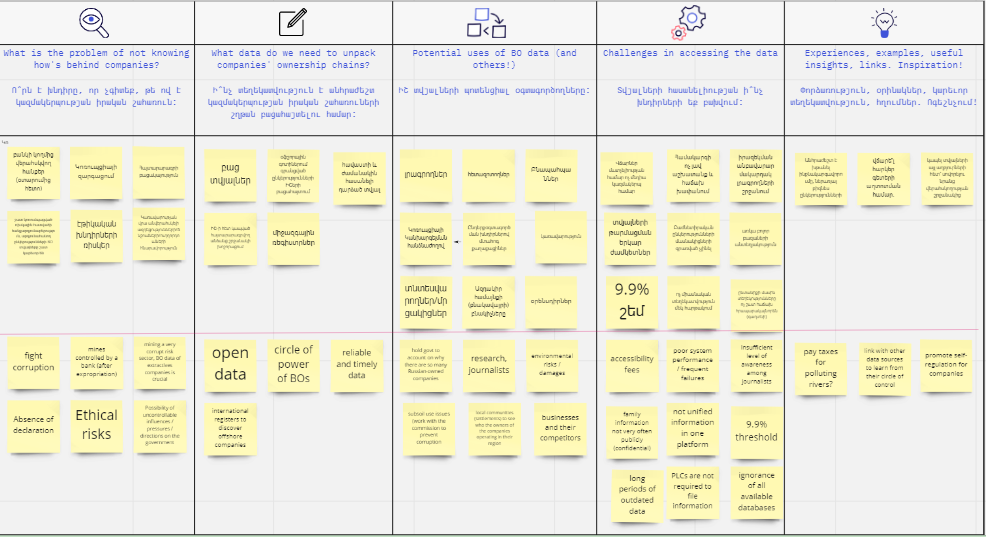
Collaborative Miro board where participants left their views and concerns
Session 2: Understanding Armenia’s Business Register
The second session was led by Kadie Armstrong, OO’s Lead Technical Consultant from Open Data Services. For several years, Kadie has been working with the Armenian Ministry of Justice and a local firm to advise on how to publish structured beneficial ownership data in BODS format.
She introduced the Business Register on a practical basis, showcasing how it works, what information can be found, and what is under development. Kadie also introduced how data is structured in JSON, how it can be visualised through OO’s BODS visualiser (also used by the Business Register, example here), and a data review tool that helps to assess the quality of BODS data and convert it into different formats.
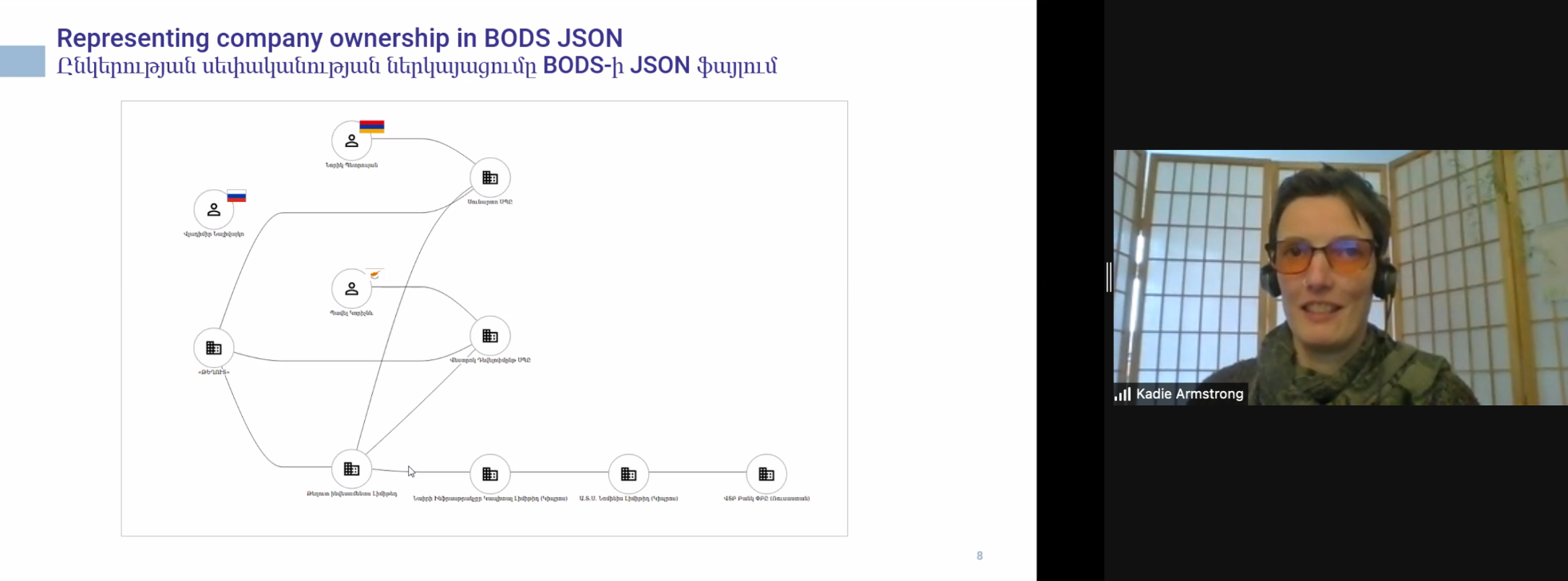
Kadie Armstrong, Lead Technical Consultant for OO, presenting how data is structured and visualised in Armenia’s Business Register
Session 3: Hands on! Investigating beneficial ownership and research techniques
The last session was led by Mkrtich Karapetyan, a renowned investigative journalist working at the Armenian Public Television and CivilNet, an independent media centre in Armenia.
Mkrtich did a live demonstration of relevant websites which can be used alongside the Business Register:
- the Central Electoral Commission’s website, containing elections results and political financing information to look for links with beneficial owners of companies linked to political parties;
- the Corruption Prevention Commission’s website, where financial disclosures and asset declarations of political exposed persons can be found, to look for potential conflicts of interests;
- the Armenian procurement system (here and here) to look for companies awarded for public contracts; and
- the judicial system’s website where information on sanctioned companies can be accessed.
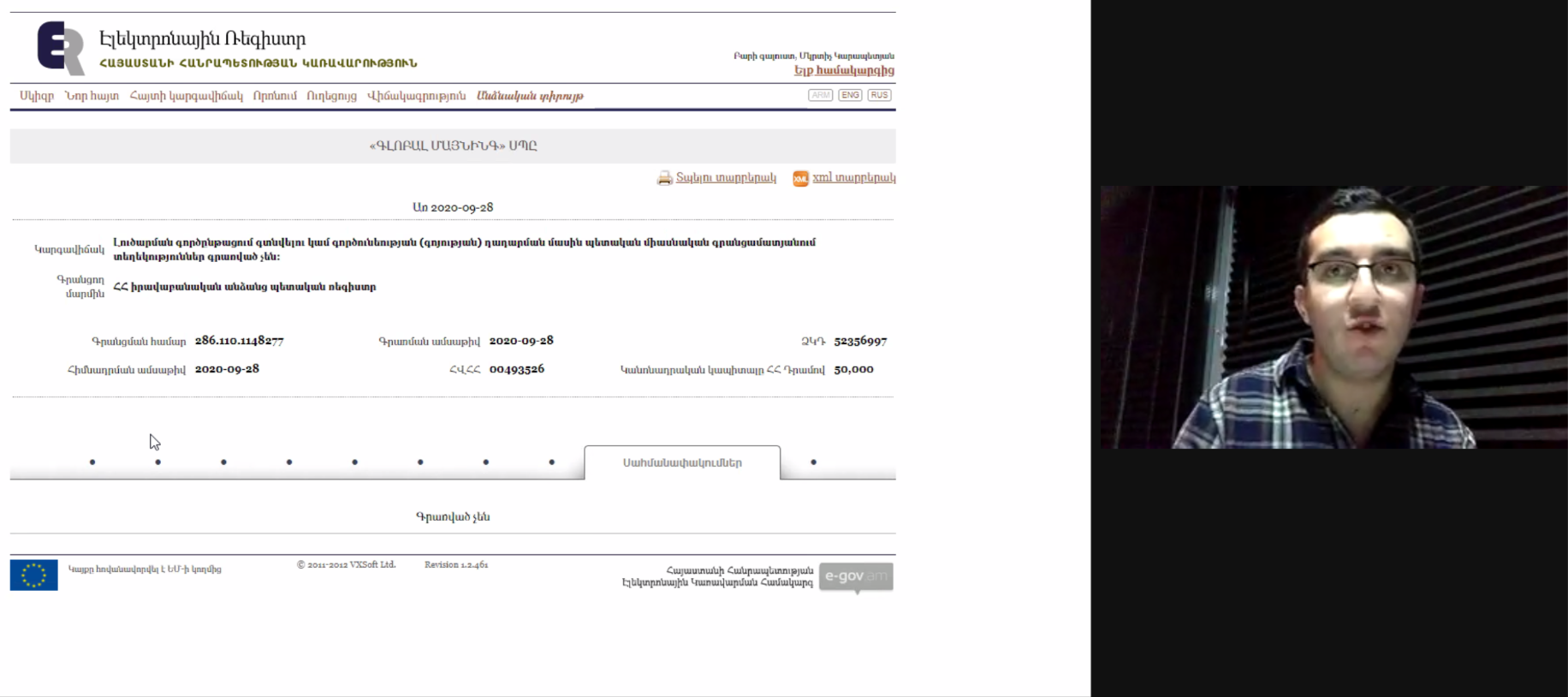
Mkrtich Karapetyan presenting one of the data sources
“The training was really very useful, as we got acquainted with a number of tools, databases, with which I had no experience and opportunity to work before. The training was very interactive, which, I think, made it more interesting and effective. The selected trainers were also very professional.” Ani Grigoryan, Editor and Founder of CivilNet Check
Lessons learned and the path forward
Prior to these training sessions, 83% of participants had never searched for information in the Business Register, and 47% had never worked with beneficial ownership data before. In a post-training survey, 80% declared being better prepared to work with the Business Register in the future. Nearly all participants found the exercises and data sources very useful, and shared that the guidance on the Business Register would help them to understand what information it contains, the data fields available, how to read declarations, and how ownership changes over time. Participants also mentioned that they wanted additional training on where to find and how to use international beneficial ownership registries from other jurisdictions.
OO, on behalf of the Opening Extractives programme, is pleased to see that the workshops helped local stakeholders increase their knowledge and confidence in using the information contained in the Business Register, and that there is demand to continue with these trainings to strengthen the knowledge gained and expand the areas of coverage. We will continue to share our insights and lessons learned to help build a global community of beneficial ownership practitioners bringing governments and companies to account.
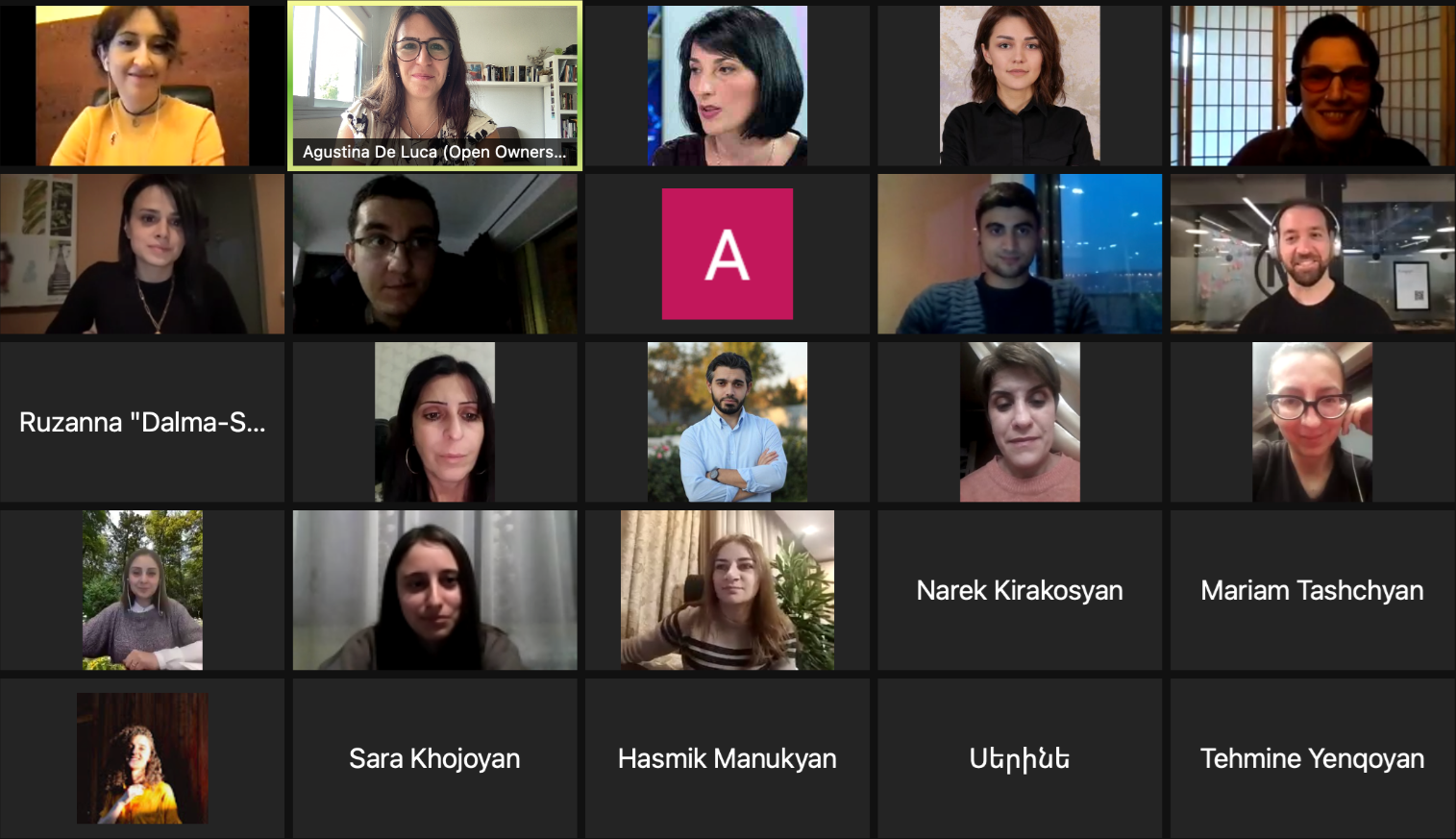
Group picture with participants and trainers
